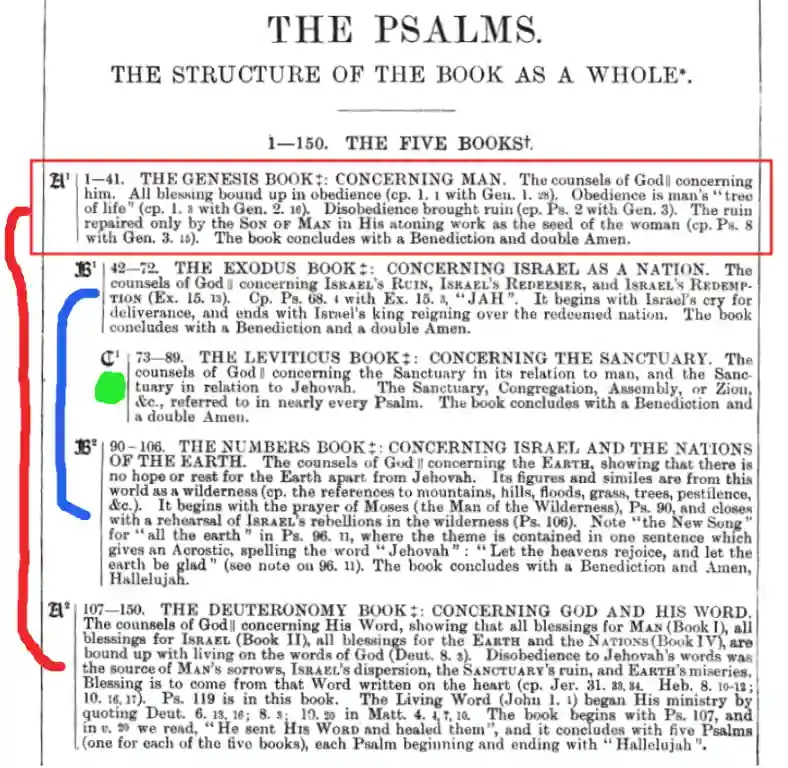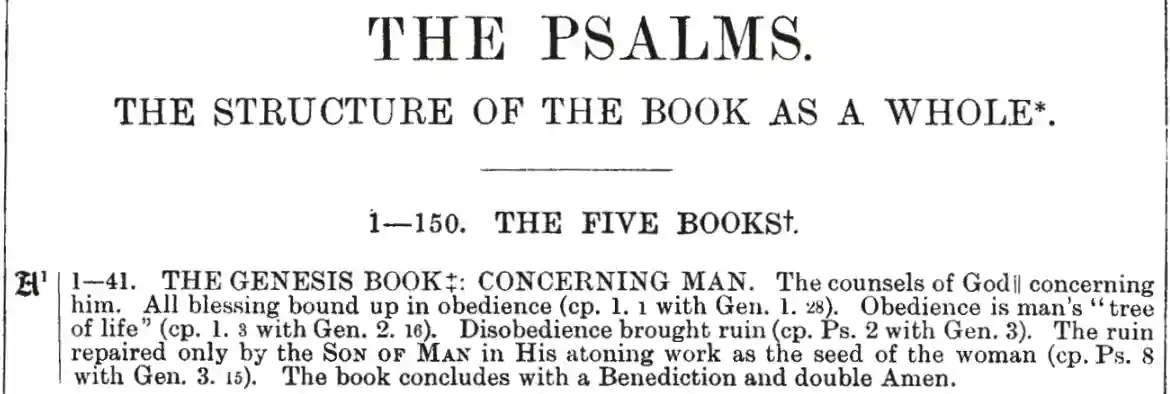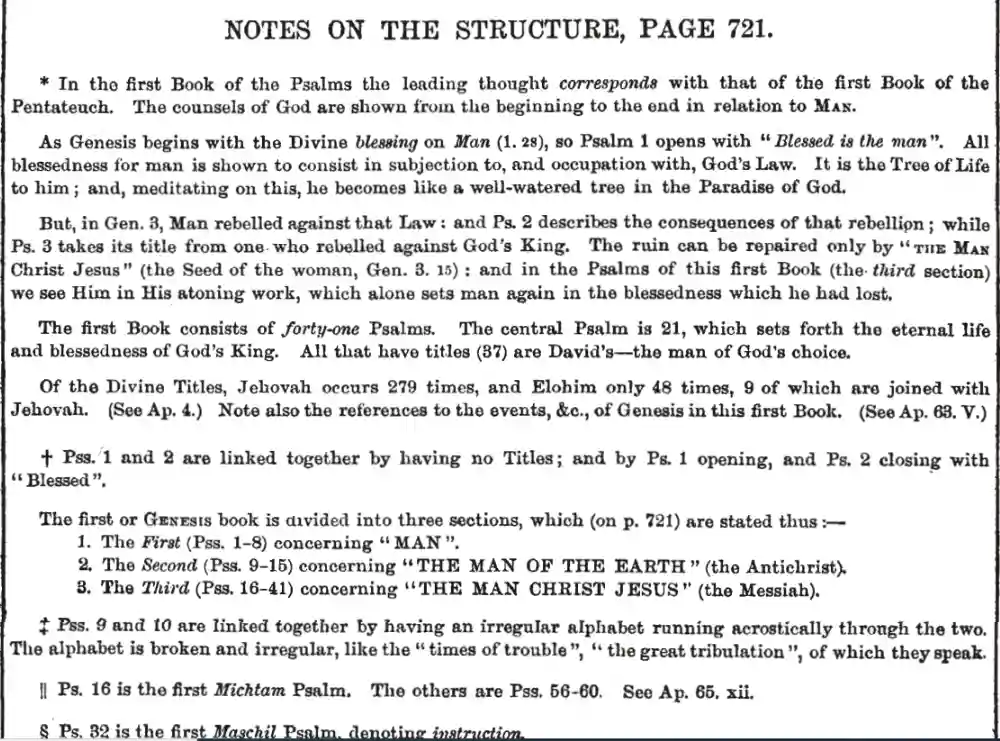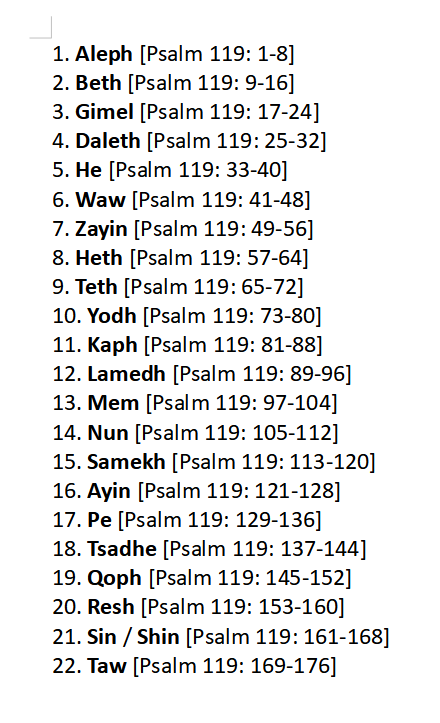View this page in 103 different languages!
Psalms 22:1
My God, my God, why hast thou forsaken me?
Why art thou so far from helping me, and from the words of my roaring?
The truth of Psalms 22 Article Outline:
- Introduction
- The Psalms-Pentateuch connection revealed
- 2 infallible proofs you'll never forget
- Figures of speech: a critical key to understanding Psalms 22:1
- Slander and Calumny: why Psalm 22:1 & Matthew 27:46 were mistranslated
- 13 Point Summary
INTRODUCTION TO THE DEFINITIVE GUIDE TO PSALMS 22:1
Welcome to your definitive guide to Psalms 22:1, a 4,700+ word research article on understanding the spiritual depths to one of the most misunderstood scriptures in the bible.In this youtube video, the characteristics of God's perfect wisdom irrefutably prove that God never forsook Jesus on the cross!
So then, how can we explain Psalms 22:1, since Matthew 27:46 quotes it?!
Its as easy as 1 2 3!
Just look at the Aramaic Peshitta text of Psalms 22:1 and the context prove that God never forsook David either.
THE AMAZING PSALMS TO PENTATEUCH CONNECTION
What does Pentateuch mean?Penta = 5
Teuch = tool or vessel
It's referring to the first 5 books of the bible:
- Genesis
- Exodus
- Leviticus
- Numbers
- Deuteronomy
Luke 24:44
And he said unto them, These are the words which I spake unto you, while I was yet with you, that all things must be fulfilled, which were written in the law of Moses, and in the prophets, and in the psalms, concerning me.
So Jesus Christ himself divided up the old testament into 3 great categories:
- Law [Pentateuch]
- Prophets
- Psalms [Hebrew>>Ketuvim = writings]
Below is a screenshot from E.W. Bullinger's Companion Reference Bible on the Pentateuch/Psalms connection.

Now we can zoom in on the section from Psalms 1 - 41 and get the revealing details.

And finally, this page of notes gives us the spiritual depths of understanding on the Godly and ordered correspondence between Genesis - Numbers [also known as the Pentateuch].

Below is a breakdown of a well known example of an acrostic Psalm in Hebrew.
Technically, Psalms 119 is an alphabetic, repeating, stanzaic acrostic.
Alphabetic because each verse or group of verses, all begin with the first letter of the Hebrew alphabet, then the second letter for the second line or group, etc.
Repeating because the Hebrew alphabet only has 22 letters, but there are 176 verses in Psalms 119. Therefore, the Hebrew alphabet has to be repeated 8 times in this Psalm.
8 is the number of regeneration and renewal.
How appropriate!
Stanzaic means having the character or form of a stanza which is an arrangement of a certain number of lines, usually four or more, sometimes having a fixed length, meter, or rhyme scheme, forming a division of a poem.
Definition of acrostic:
a series of lines or verses in which the first, last, or other particular letters when taken in order spell out a word, phrase, etc.
This acrostic Psalm then is an incredible example of the magnificence, beauty, symmetry, balance and precision of the word of God.
It also makes it easier to remember.
Psalm 119:16
I will delight myself in thy statutes: I will not forget thy word.

An ancient Aramaic manuscript and the context of Psalms 22:1 prove God never forsook David!
Look at the screenshot of Psalms 22:1 in the Lamsa bible, translated from the 5th century Aramaic Peshitta text.
Psalms 22:1 [KJV]
My God, my God, why hast thou forsaken me? why art thou so far from helping me, and from the words of my roaring?
Psalms 22:1 [5th century Aramaic Peshitta text]
God, my God, why hast thou let me to live? and yet thou hast delayed my salvation from me, because of the words of my folly.
My God, my God, why hast thou forsaken me? why art thou so far from helping me, and from the words of my roaring?
Psalms 22:1 [5th century Aramaic Peshitta text]
God, my God, why hast thou let me to live? and yet thou hast delayed my salvation from me, because of the words of my folly.
THE CONTEXT OF PSALMS 22 PROVES THAT GOD NEVER FORSOOK DAVID!
As a reminder, Psalms 22 is in the context of the famous Psalms 23
Psalms 23
1 The Lord is my shepherd; I shall not want.
2 He maketh me to lie down in green pastures: he leadeth me beside the still waters.
3 He restoreth my soul: he leadeth me in the paths of righteousness for his name's sake.
4 Yea, though I walk through the valley of the shadow of death, I will fear no evil: for thou art with me; thy rod and thy staff they comfort me.
5 Thou preparest a table before me in the presence of mine enemies: thou anointest my head with oil; my cup runneth over.
6 Surely goodness and mercy shall follow me all the days of my life: and I will dwell in the house of the Lord for ever.
Verse 4 says, "for THOU ART WITH ME; thy rod and thy staff they comfort me", so how could God have forsaken him?!
Verse 6 corroborates this as well, giving the reassuring message that "I WILL DWELL IN THE HOUSE OF THE LORD FOR EVER", so how could God have forsaken him?!
Psalms 21:13 [KJV] [the last verse of chapter 21]
Be thou exalted, Lord, in thine own strength: so will we sing and praise thy power.
Psalms 22:1 [5th century Aramaic Peshitta text]
God, my God, why hast thou let me to live? and yet thou hast delayed my salvation from me, because of the words of my folly.
Be thou exalted, Lord, in thine own strength: so will we sing and praise thy power.
Psalms 22:1 [5th century Aramaic Peshitta text]
God, my God, why hast thou let me to live? and yet thou hast delayed my salvation from me, because of the words of my folly.
That's the true word of God without any contradiction, confusion or problems. Psalms 22:1, along with all other verses in the bible, must be understood in their context.
How could David be exalting God and singing about him and praising his power in one verse, but in the very next verse be asking why God has forsaken him?
I John 1:5
This then is the message which we have heard of him, and declare unto you, that God is light, and in him is no darkness at all.
I John 4
7 Beloved, let us love one another: for love is of God; and every one that loveth is born of God, and knoweth God.
8 He that loveth not knoweth not God; for God is love.
We must understand that we are caught in the middle of a spiritual competition between God and the devil, who is the ruler of the earth at this time. The devil is always attacking God's word anywhere and anytime he can.
FIGURES OF SPEECH: A CRITICAL KEY TO UNDERSTANDING PSALMS 22:1
There is an even deeper meaning to Psalms 22:1 that we need to cover. It is the figure of speech Erotesis, which means interrogating and refers to the asking of questions without waiting for the answer. It is similar to a rhetorical question.E.W. Bullinger in his book figures of speech, page 943, explains its use. "This figure is used when a speaker or writer asks animated questions, but not to obtain information.
Instead of making a plain and direct statement, he suddenly changes style, and puts what he was about to say or could otherwise have said, into the form of a question, without waiting for an answer.
Instead of declaring a conviction, or expressing indignation, or vindicating authority, he puts it in the form of a question without expecting any reply."
On page 945, he continues. "With regard to the questions themselves, their classification is another matter altogether. Some are searching, causing the mind to pause, wonder, and admire.
Some are revelations of the attributes of God, and of the depravity of man. The very first divine question of the Old Testament reveals the condition of man by nature: "Where art thou?" [Genesis 3:9] It comes from God to the sinner, now "far off" [Ephesians 2:13].
While the first question in the New Testament reveals the effect of this on the sinner's heart, causing him to turn to that Saviour whom the New Testament reveals, and cry "Where is he?" [Matthew 2:2]".
"We have only to reflect on the interesting fact that the figures used most frequently by the Lord Jesus are Interrogation and Implication [Erotesis and Hypocatastasis].
The very first thing that is mentioned concerning him as the first act of his life, is that he was found "in the temple, sitting in the midst of the doctors, both hearing them, and asking them questions" [Luke 2:46].
Doubtless he could teach them much that would astound them, by the use of this figure, in spite of the disparity of age. For a child of twelve years of age may question, when he may not teach; and yet, by this simple means, teach more effectively than the greatest of teachers. No wonder that "all that heard him were astonished".
So when we apply this magnificent figure of speech to Psalms 22:1, we see this verse come into greater alignment of the true words Jesus spoke in Matthew 27:46 and Mark 15:34.
Psalms 22:1 [5th century Aramaic text]
God, my God, why hast thou let me to live? and yet thou hast delayed my salvation from me, because of the words of my folly.
So if we were to undo, or change this figure of speech back into the literal plain statement of fact from which it originated, it would look like this:
Psalms 22:1
God, my God, thou hast let me to live!
Matthew 27:46
My God, My God, for this purpose was I spared!
God, my God, thou hast let me to live!
Matthew 27:46
My God, My God, for this purpose was I spared!
So it is true: the true words of Jesus Christ, while he was hanging on the cross, were a quotation of Psalms 22:1, but not in the corrupted modern versions, but from the ancient Aramaic text.
What a God we have! I never cease to marvel at the depth of heart and amazing accuracy of God's perfect word.
SLANDER AND CALUMNY: WHY MATTHEW 27:46 & PSALMS 22:1 WERE MISTRANSLATED
Matthew 4:11Then the devil leaveth him, and, behold, angels came and ministered unto him.
Greek lexicon of Matthew 4:11 Now go to Strong's #1228
Greek concordance of devil
Strong's Concordance #1228
diabolos: slanderous, accusing falsely
Part of Speech: Adjective
Phonetic Spelling: (dee-ab'-ol-os)
Definition: (adj. used often as a noun), slanderous; with the article: the Slanderer (par excellence), the Devil.
HELPS Word-studies
1228 diabolos (from 1225 /diaballo, "to slander, accuse, defame") - properly, a slanderer; a false accuser; unjustly criticizing to hurt (malign) and condemn to sever a relationship.
[1228 (diabolos) is the root of the English word, "Devil" (see also Webster's Dictionary).
1228 (diabolos) in secular Greek means "backbiter," i.e. an accuser, calumniator (slanderer). 1228 (diabolos) is literally someone who "casts through," i.e. making charges that bring down (destroy).]
Definition of slander
slan der [slan-der]
noun
1. defamation; calumny: rumors full of slander.
2. a malicious, false, and defamatory statement or report: a slander against his good name.
3. Law. defamation by oral utterance rather than by writing, pictures, etc.
verb (used with object)
4. to utter slander against; defame.
verb (used without object)
5. to utter or circulate slander.
Origin:
1250-1300; (noun) Middle English s ( c ) laundre - Anglo-French esclaundre, Old French esclandre, alteration of escandle - Late Latin scandalum cause of offense, snare (see scandal);
(v.) Middle English s ( c ) laundren - to cause to lapse morally, bring to disgrace, discredit, defame - Old French esclandrer, derivative of esclandre
Definition of calumny
cal um ny [kal-uhm-nee]
noun, plural cal um nies.
1. a false and malicious statement designed to injure the reputation of someone or something: The speech was considered a calumny of the administration.
2. the act of uttering calumnies; slander; defamation.
Origin:
1400-50; late Middle English - Latin calumnia, equivalent to calumn-, perhaps originally a middle participle of calvi to deceive + -ia -y3 )
Synonyms
2. libel, vilification, calumniation, derogation.
THE SPIRITUAL REASON WHY PSALMS 22:1, MATTHEW 27:46, & MARK 15:34 WERE MISTRANSLATED IS BECAUSE THE DEVIL, AS THE ACCUSER, THE CALUMNIATOR, THE HYPOCRITE AND THE SLANDERER, IS WORKING OVERTIME TO DESTROY THE REPUTATION OF GOD, HIS SON JESUS CHRIST, AND GOD'S WORD.
The devil's objective is to corrupt the bible.
His goal is to:
- poison the minds of Christians and the rest of the world against God, Christianity, and their reputation
- to cause confusion.
- to damage the reputation of God.
- hinder evangelism - who wants or admires a God who forsakes his own, and only, and perfect son?!?!
- Introduce doubt into the minds of believers, one of the 4 signs of weak believing.
In John 8, Jesus Christ is confronting some religious leaders who were born of the seed of the devil.
John 8
44 Ye are of your father the devil, and the lusts of your father ye will do. He was a murderer from the beginning, and abode not in the truth, because there is no truth in him. When he speaketh a lie, he speaketh of his own: for he is a liar, and the father of it.
45 And because I tell you the truth, ye believe me not.
Did you see that? The devil is not only a liar, but he is the father of lies! The word father is used figuratively to indicate the originator of lies. Lies did not exist until the devil came into being.
We've seen that the mistranslation of Psalms 22:1, Matthew 27:46 & Mark 15:34 are lies about God and Jesus Christ both.
SUMMARY
- Psalms 22:1 was another horrifically mistranslated verse. The 5th century Aramaic text translated it: "God, my God, why hast thou let me to live? and yet thou hast delayed my salvation from me, because of the words of my folly"
- The traditional translation of Psalms 22:1 contradicts the verse immediately before it [the context] - Psalms 21:13 "Be thou exalted, Lord, in thine own strength: so will we sing and praise thy power". David would not be praising God in one verse and then in the very next verse be complaining that God has forsaken him
- Psalms 22 is also in the context of the famous Psalms 23, where the Lord is my shepherd that does not abandon his sheep and he is in the house of the Lord forever, destroying the lie that God forsook Jesus on the cross
- In Psalms 22:1, there is a figure of speech called Erotesis [interrogating], a question that does not request an answer. The literal translation of this verse is: "God, my God, thou hast let me to live!"
- Since there was a divine purpose for God allowing David to live and Jesus hanging on the cross, the accurate translation of Matthew 27:46 & Mark 15:34 is in perfect alignment of the accurate translation of Psalms 22:1 from the 5th century Aramaic text
- 9 more verses in the old testament confirm that God does not leave or forsake us
- The Greek word for "devil" in Matthew 4:11 is diabolos, which means "a slanderer; a false accuser; unjustly criticizing to hurt (malign) and condemn to sever a relationship"
- The definition of slander is: "a malicious, false, and defamatory statement or report; defamation; calumny"
- The definition of calumny is: "a false and malicious statement designed to injure the reputation of someone or something".
- The spiritual reason that Psalms 22:1, Matthew 27:46 & Mark 15:34 were mistranslated into their current form is because the devil is the God of this world, who is a slanderer, a calumniator, whose goal is to destroy the reputation of God, his son Jesus Christ, and God's word with false accusations.
- The false accusation in Matthew 27:46 & Mark 15:34 is only the tip of the iceberg of countless false accusations that the devil has railed against the one true God.
- How many christian lives were compromised by the devil's lies about God? How many walked away from the Lord as a consequence? How many people never even became a christian because of the lies about the Lord?!
- The crucifixion article on the corruption of Matthew 27:46 & the truth of Psalms 22:1 irrefutably prove that God did not and could not have forsaken his only begotten son, Jesus Christ, while he was hanging on the cross, or at any other time in his life.